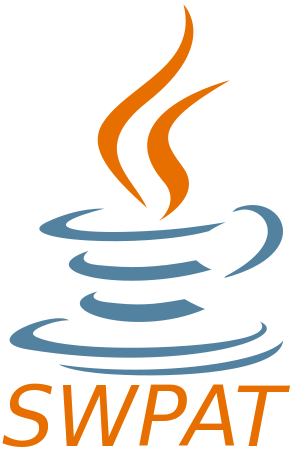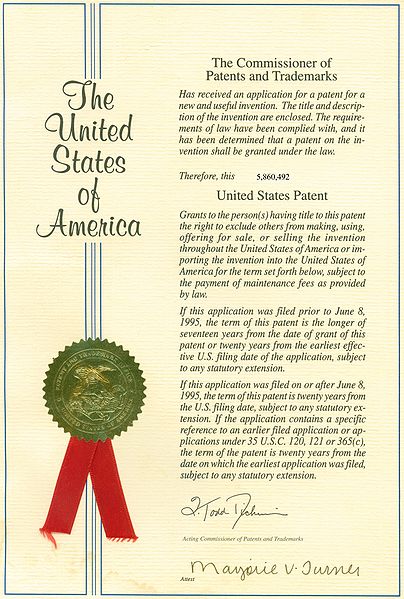01.08.13
Guest Post: Windows RT – Jail Breaking!
Pushing Windows the Microsoft Way – An Economy without a Conscience!
Recently, we all heard about how the Microsoft’s ARM-based version of Windows RT (Surface Tablet) is only intended to run Metro-style applications downloaded directly from the Microsoft “Windows Store”. You already knew this of course.
But did you know why as the reason for it?
The restriction of installing only Metro-style applications on Windows RT is enforced through a code integrity mechanism that checks the application’s signature before allowing it to be installed. This mechanism is hardcoded in the kernel itself and cannot be modified permanently in systems using UEFI “Secure Boot”. Due to the required cryptographic signature from Microsoft (as an UEFI signing key) stored in the firmware; that will authorize only approved boot loading software like the “Windows” OS kernel.
But a hacker (clrokr) has just shown, it can, however, be changed in virtual RAM memory!
Using some clever reverse-engineering, the hacker discovered the location of this setting in the virtual RAM memory, and then used Microsoft’s own remote debugger to execute some code and alter its value.
Of course, the setting isn’t permanent and it does require that the x86 (32 bit) desktop software applications to be ported (recompiled) for the ARM architecture.
However, this clearly shows, Windows RT was a decision to BAN ALL traditional desktop software applications on purpose, rather than as a technological limitation by design.
The same can be said for the artificial limitation of the licensed memory in 32-bit “Windows” too. See this.
Should Microsoft have the legal right of EXCLUDING out ALL other competition, by locking down the Windows RT (Surface Tablet) platform (ARM architecture) to which only Microsoft gets to ALLOW software that is only provide through them (Windows Store)?
How is this different than locking out ALL other operating systems on UEFI “secure boot” hardware, that requires an approved Microsoft digital signature loaded into the firmware for verification (protectionism) or rather just another instance of applying a code integrity mechanism?
Would kind of business behaviour would you label Microsoft as; when they can only compete when the customers cannot choose?
Let’s review some of the many ways Microsoft is pushing “Windows”;
- Get hardware manufactures to preload and preinstall $$$ “Windows” on just about every PC globally. Nobody would value a FREE OS like Linux, right?
- Have the customer BUY “Windows” without offering the terms for review! That is until AFTER the purchase, when the customer takes home the product to boot up the OS system for the first time.
- That’s the moment when the EULA demands your FULL submission and surrender to be like an ultimatum, as there is NO negotiation, what’s so ever! It’s ACCEPT or the cancel button. Note, with the defeat of war even our enemies and advisories doesn’t get this kind of abuse and exploitation. Japan got to keep their emperor despite the unconditional surrender.
- No REFUNDS (1 in a billion chance), are given out for rejecting the Microsoft forced License (tax) worldwide. Walk into most stores, ask the manufactures or Microsoft for a refund, just go ahead and try. LOL
- Demand software to be only obtainable from the “Microsoft Store” (regarding Windows RT Surface Tablets). Just 1 source only to obtain ALL your software needs from Microsoft, and that’s not a monopoly? LOL
- Bundling code like IE and Office, so competitor software developers will be at huge disadvantages due to the interoperability issues and the constant code changes that break their software applications.
- Shove proprietary censorship like DRM, HDCP and IRM upon “Windows” users. Not to mention the backing of political DMCA, ACTA, SOPA, PIPA, ITU legislation.
- Lock down Windows RT (Surface Tablets) by denying everyone else the right to port their Intel software programs to run on the ARM architecture.
- Netscape and Caldera would never had the privilege of having their software sabotaged by Microsoft, with fake error messages and hacks designed by Microsoft to make it crash.
- “Embrace, extend and extinguish,” also known as “embrace, extend, and exterminate,” is a phrase that the U.S. Department of Justice found was used internally by Microsoft.
- Microsoft builds in restrictions, then plans to charge big money to remove them. Is this the type of “Features” you want to purchase?
Example:
Windows 7 Starter “Cripple” Edition with so many built-in disabled Features!
-> 32bit Only (Must use slower PC)
-> 1 CPU Supported Only (Must use crappy PC)
-> Cannot Create a Home Group (Don’t Share)
-> Cannot Backup to Network (No network back)
-> No Multiple Monitor Support
-> No Fast user switching
-> No Changeable Desktop Wallpaper
-> No Desktop Window Manager
-> No Windows Mobility Center
-> No Windows Aero Glass Themes
-> No Multitouch
-> No Aero glass remoting
-> No Premium Games Included
-> No Windows Media Center
-> No Windows Media Player Remote Media Experience
-> No Encrypting File System
-> No Location Aware Printing
-> No Remote Desktop Host
-> No Presentation Mode
-> No Windows XP Mode
-> No Windows Server domain joining
-> No Direct Access
-> No AppLocker
-> No BitLocker Drive Encryption
-> No BranchCache Distributed Cache
-> No Multilingual User Interface Pack
-> No Virtual Hard Disk Booting
-> No Subsystem for Unix-based Applications
- Windows file incompatibilities, major interface changes, etc… In fact, Microsoft even has their own special word for bugs, “Entomophobia”! But as interesting that is, when one considers how NONE of the third party vendors plan to ever FIX “Windows” like the antivirus providers, who obviously thrive on them bugs, who only exist to sell you their subscription services until the end of time, just lets us know what to expect come Windows 100. To be more of the same, just relabeled, rebranded, a 100 times! Isn’t this a lot like how the pharmaceutical industry has invested into controlling disease by focusing on “symptom suppression”, so they can make huge profits by hooking patients to become a lifelong users of their drug products? As curing the patient doesn’t earn them more profit, it’s better to prolong the disease insuring the addiction of being DEPENDENT, right?
Clearly the world needs Microsoft, because we need suppression of choice with a monopoly, enforced by dubious business practices tantamount to racketeering, resulting in buggy, insecure, bloated, overpriced software?
The absolute worst thing if there was no Microsoft, is there’d be this intolerable condition known as diversity, which might lead to the horrors of accelerated innovation. Then people would have even more choice, and we’d all be doomed?
Consumers would have to put up with that dreaded thing called “choice” when purchasing a PC, including the choice to buy one “naked“, which as everyone knows is disgusting and illegal. Some might even choose to preinstall that “Linux” operating thingie, which I hear is only used and endorsed by every other country.
Internet Standards would work in that horrid and annoying way that is interoperable across platforms, without requiring the bestest and mostest insecure Web browser in history to do your online banking.
Maybe, it’s NOT Microsoft’s own fault, we should blame, but rather the BROKEN economy system (momentary-market economy) that wasn’t design to be sustainable, moral and ethical?
After all, how can anyone be expected to participate in a money economy, if they don’t have sufficient amounts of money? Doesn’t that explain most of the crimes, which just happen to revolve around financial reasons, be the Mafia, theft, robbery, ransom, extortion, blackmail, political prostitution, even marriage as a method and means of acquiring the money?
Isn’t money really a system designed by the RICH, in favor of the wealthy, who use the instrument of money to TRANSFER the labor, time and effort given by and from the majority of people, into a concentration of wealth for the rich?
This system does NOT even insure the uplifting of poverty! It actually creates poverty, by means of producing inequality among society and psychopathic corporations (snakes in suits appointed by vulture capitalist, communist or socialist). Take your pick! It’s only propaganda hype, shills, trolls, worshiping pundits or evangelists looking out for their own interest.
The “monetary system” takes no responsibility for the well-being of ALL people. You cannot measure God and no amount of money will make the world a better place. It takes people doing that themselves by the day to day things they do for each other.
In fact, the most important investment in life are the people you make friends with and whose examples you follow. The people you invest in will generate the greatest impact on your life. Only people can provide other people with opportunities. As only people can help other people.
Everyone on this planet ALL want to experience a better quality of life. The question becomes what are “WE” doing to create that existence, by creating that environment, so that it can exist and happen? What do we care about that effort we give each day to see that it does happen?
If all the money in the world was suddenly removed, taken away, we would still have everything we need, the same amount of people to do the work as before, even the factories, the machines, everything. The only thing missing here is a better reason for us to cooperate together on doing it.
Realize, to be human means to care for each other and civilization means to work together to create a better life for everyone. The moment we stop fighting for each other that’s the moment that we lose our humanity. To save the human race we have an obligation to stick to this plan for all of civilization, right?
As nobody knows everything about everything; we are all more ignorant than we realize. As NONE of us is as smart as ALL of us. That’s why we need civilization, to draw upon each other’s strengths to overcome our individuals weakness.
Our purpose in life involves us acquiring a level of consciousness we’re NOT born with. If we look around us in the chaos of today, it is self-evident that the vast majority of us are unaware that such a possibility even exists.
Humanity only needs a better reason to dump the BROKEN momentary-market economy. Well, there is a known method to do just that, it’s been theorized as a “resource-based economy” by Jacque Fresco.
Watch “Paradise or Oblivion” (magnet) or (YouTube)
A free online documentary created by The Venus Project and see for yourself, right?
Also worth watching “Future by Design” (magnet) or (dotsub.com)
An Oscar-nominated filmmaker William Gazecki directed this thought-provoking documentary, chronicling the life and work of self-taught futurist Jacque Fresco, a Florida-based engineer, designer and inventor who’s built his life around forward thinking.
Isn’t it time to realize, there is more to life, than money?
Have you read “Free Culture” by Lawrence Lessig?
Perhaps your readers have already seen the video titled as “The Story of Stuff”, about the lifecycle of material goods, by Annie Leonard?
Here is a FREE film “Sita Sings the Blues” by Nina Paley! She even explicitly used a Creative Commons Attribution-Share Alike License so that everyone can freely distribute, copy, share, archive, and even show “Sita Sings the Blues” in public. From the shared culture it came, and back into the shared culture it goes!
Download it here: www.archive.org/download/Sita_Sings_the_Blues/Sita_Sings_the_Blues_720p.mp4
(2.4GB) or just watch it on YouTube (HD Stream)
She wrote, “conventional wisdom urges me to demand payment for every use of the film, but then how would people without money get to see it?“.
This shows how humanity needs a better system to work for (thrive) than the current acquisition of wealth model. How about developing our “human potentials” to be of greater value for ALL of society?
Adter all if we make smarter technologies, why shouldn’t we adapt smarter economic models as well? The same goes for smart grids that allow society to share clean energy too.
Imagine how a superconductive clean and sustainable energy network gird would make it possible to power the entire whole world with FREE energy for all.
Scientists have confirmed that enough solar energy falls on the surface of the earth every 40 minutes to meet 100 percent of the entire world’s energy needs for a full year. Tapping just a small portion of this solar energy could provide all of the electricity America uses. – Former U.S. Vice President Al Gore
Two American companies, First Solar and Nanosolar, say they can now manufacture thin-film solar cells at a cost of around a dollar a watt. Source: National Geographic Society Sept. 2009
The sun radiates about a kilowatt of energy per square meter on the surface of Earth, according to B.J. Stanberry, CEO of HelioVolt. There are 2.6 million square meters in a square mile. Thus, every square mile gets about 2.6 gigawatts.
Arnulf Jaeger-Walden, one of Europe’s leading energy authorities, said that less than 0.4% percent of the solar energy that falls on the deserts of North Africa and the Middle East would satisfy all of Europe’s energy needs, while speaking at the Euroscience Open Forum in Barcelona, Spain.
Enough wind power blows through the Midwest corridor every day to also meet 100% percent of US electricity demand. – Former U.S. Vice President Al Gore
Yearly emissions eliminated by generating energy from a 1 MW wind turbine instead of 1 MW of conventional sources: over 1,500 tons of carbon dioxide, 6.5 tons of sulfur dioxide, 3.2 tons of nitrogen oxides, and 60 pounds of mercury in one year.
Eicke Weber, director of the Fraunhofer Institute for Solar Energy Systems, in Freiburg, Germany, stated, “The total power needs of the humans on Earth is approximately 16 terawatts”. The sunshine on the exposed land mass of the Earth is about 120,000 terawatts.
Clearly, humanity could build the superconductivity clean energy network grid to power a sustainable global economy, that favours everyone on the planet and by reducing pollution. A win, win situation for everyone.
A superconductivity clean energy network grid will insure 50% of the surface of the planet has the means to transfer the energy at all times to everyone else, including the dark side. If we factor in all the additional methods of generating clean energy, there is an abundance so great we haven’t even begin to invent what to do with it all.
Right now our dependence upon using dirty polluting energy is choking our economy, accelerating climate change, due to global warming, making the dirty energy suppliers wealthier than kings, governments, maybe God (figure of speech). What good will all that money be when the climate mean average temperature reaches 150 Fahrenheit? When all the trees burn, and the plankton die off, leaving only depleting oxygen to be consumed as we all expire? Who will care about money then? Why should we let money decided out fate today, when we have every good reason instead to do BETTER?
Are we obliged to believe in that the same God who has endowed us with sense, reason, and intellect has intended us to forgo their use, right?
While I’m on this subject, here is another inspiring inspirational film: http://www.youtube-nocookie.com/embed/lEV5AFFcZ-s It’s titled “Thrive” An eye opener documentary not to miss out on.
A final thought, just how many weapons of mass destruction will it take to make the world a safe place for all; 1, 1,000, 10,000, a million, what does it take?
The solution is not the destruction of humanity or the environment, for the problem is the thinking, the human ability to reason, because human beings are to blame for every war, every crime against humanity, when the people of this world are creating the very instruments of our demise rather than our ability to work out and resolve our indifferences without going to war.
Obviously, we not there yet, and that is why humanity needs a better REASON to work for our future ahead.
In the meantime, let us be grateful to the people who make us happy, for they are the charming gardeners who make our souls blossom! █





















 Content is available under CC-BY-SA
Content is available under CC-BY-SA